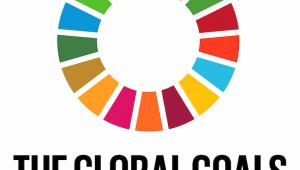By Judith Ugwumadu | 17 December 2014
The UK has been urged to do more to ensure that government policies in areas such as defence and migration are supporting its broader international development goals.
An examination by the Organisation for Economic Co-operation and Development praised the UK for fulfilling its promise to spend more than 0.7% of its gross national income on foreign aid.
However, the Development Assistance Committee peer review said that it could do more to join up its policy in a host of areas with the work of the Department for International Development.
The government's performance has not improved in this area since 2010, according to the review.
The OECD report said: ‘It could also step up its efforts to ensure that domestic and foreign policies in areas like defence and migration support its development work and do more to monitor these efforts.’
DAC chair Erik Solheim, said the UK had remained committed to fighting global poverty despite its own economic crisis. The UK increased its development aid spending to 0.72%.
He said: ‘This is an impressive achievement and shows that a persistent political will can bring goals within reach.’
The UK has been urged to keep its foreign aid at this level for the years ahead. It is the first major economy to meet the 0.7% target agreed by international donors in 1970. The OECD DAC notes that raising its official development assistance by 30.5% to £11.4bn in 2013 made the UK the world number two donor by aid volume after the US.
The scaling-up of the UK’s aid budget was planned in a way that should ensure the extra money was well spent and had the greatest possible impact, according to the review.
It has also focused on the neediest countries, including fragile and conflict-affected states such as Afghanistan, Bangladesh and Ethiopia. In 2012 the UK allocated 0.19% of its GNI to the least-developed countries, above a UN goal of 0.15%, and with more than half of its bilateral official development assistance that year going to sub-Saharan Africa.












